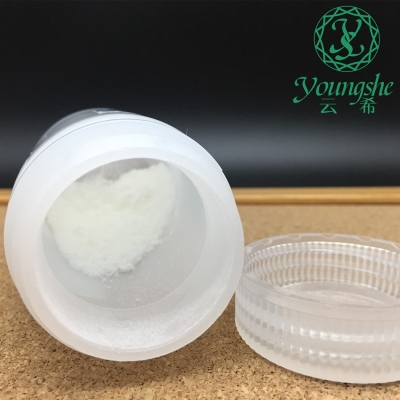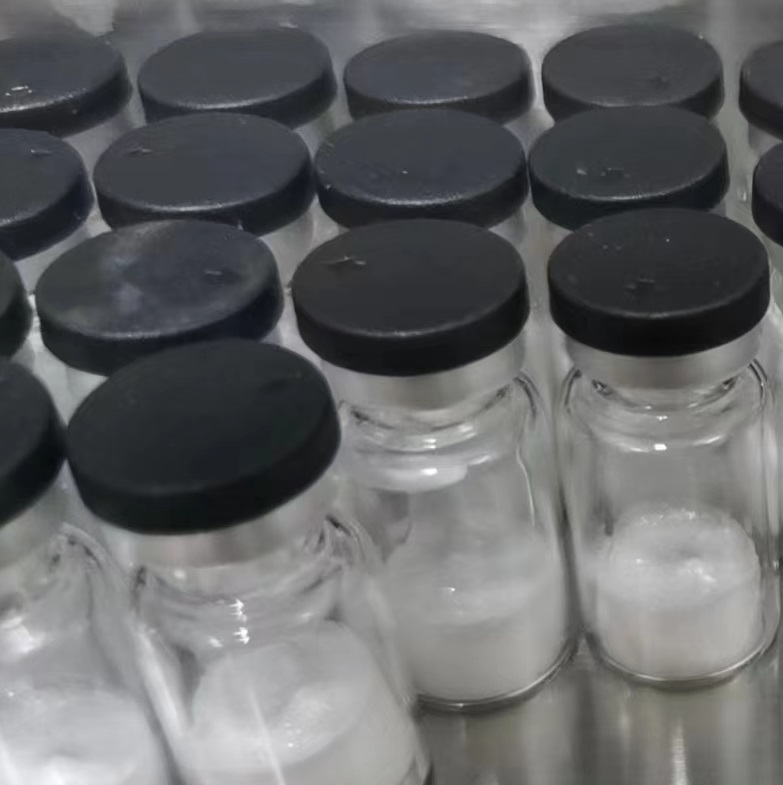-
Categories
-
Pharmaceutical Intermediates
-
Active Pharmaceutical Ingredients
-
Food Additives
- Industrial Coatings
- Agrochemicals
- Dyes and Pigments
- Surfactant
- Flavors and Fragrances
- Chemical Reagents
- Catalyst and Auxiliary
- Natural Products
- Inorganic Chemistry
-
Organic Chemistry
-
Biochemical Engineering
- Analytical Chemistry
- Cosmetic Ingredient
-
Pharmaceutical Intermediates
Promotion
ECHEMI Mall
Wholesale
Weekly Price
Exhibition
News
-
Trade Service
I don’t lose weight in March, and I feel sad in April.
For those who have gained weight during the Chinese New Year, the hard work of losing weight should be put on the agenda again
.
For those who have gained weight during the Chinese New Year, the hard work of losing weight should be put on the agenda again
.
With the improvement of living standards and changes in living habits, the incidence of overweight and obesity has continued to soar in countries around the world, and has evolved into a global health problem
.
It is worth noting that obesity is closely related to the body's metabolism and immune function, a key feature of which is that obesity causes low levels of inflammation, which predisposes the body to metabolic syndrome
With the improvement of living standards and changes in living habits, the incidence of overweight and obesity has continued to soar in countries around the world, and has evolved into a global health problem
Recently, researchers from Trinity University Dublin published a research paper titled: Innate PD-L1 limits T cell–mediated adipose tissue inflammation and ameliorates diet-induced obesityinScienceTranslational Medicine.
This study shows that PD-L1 on dendritic cells ( DCs ) controls adaptive immune responses within adipose tissue to limit diet-induced obesity .
In mice on a high-fat diet, PD-L1 deficiency in dendritic cells promotes increased adiposity and impaired adipose tissue T- cell polarization .
PD-L1 also plays such a regulatory role in human adipose tissue, and PD-L1 expression in visceral adipose is positively correlated with weight gain in obese individuals
.
Thus, this study defines a mechanism of adipose tissue homeostasis controlled by dendritic cell expression of PD-L1 , which may be associated with immune-related adverse events during immune checkpoint inhibitor therapy
PD-L1 also plays such a regulatory role in human adipose tissue, and PD-L1 expression in visceral adipose is positively correlated with weight gain in obese individuals
This finding proposes a new pathway for the regulation of inflammation in adipose tissue, and also provides a new idea for the treatment of obesity
The growing global prevalence of obesity has become one of the greatest challenges facing health care systems
.
Statistics show that 1.
9 billion adults are overweight and 600 million are obese in the world, and 51% of the global population is expected to be obese by 2030 .
What's more, obesity will not only cause inconvenience to daily life, but also further lead to various metabolic syndromes .
The growing global prevalence of obesity has become one of the greatest challenges facing health care systems
Interestingly, more and more studies have shown that the immune system of obese patients is severely dysregulated, leading to the development of inflammation
In this latest study, the research team reports that a co-stimulatory molecule , programmed death ligand- 1 ( PD-L1 ), has an important limiting effect on diet-induced obesity
Immune checkpoint PD-L1 is strongly associated with obesity suppression
Immune checkpoint PD-L1 is strongly associated with obesity suppressionThe researchers found that conditional knockout of the PD-L1 gene in dendritic cells ( DCs ) from mice suppressed diet-induced weight gain and metabolic syndrome .
In contrast, PD-L1 expression on type 2 innate lymphoid cells ( ILC2s ), T cells and macrophages is dispensable for obesity control .
In in vitro co-culture, dendritic cells interacted with T cells and ILC2s via the PD-L1:PD-1 axis to inhibit T helper type 1 cell proliferation and promote type 2 polarization , respectively .
The researchers found that conditional knockout of the PD-L1 gene in dendritic cells ( DCs ) from mice suppressed diet-induced weight gain and metabolic syndrome .
In contrast, PD-L1 expression on type 2 innate lymphoid cells ( ILC2s ), T cells and macrophages is dispensable for obesity control .
In in vitro co-culture, dendritic cells interacted with T cells and ILC2s via the PD-L1:PD-1 axis to inhibit T helper type 1 cell proliferation and promote type 2 polarization , respectively .
Conditional knockdown of PD-L1 in ILCs , T cells and macrophages has no effect on obesity
Conditional knockdown of PD-L1 in ILCs , T cells and macrophages has no effect on obesityNotably, PD-L1 also has a regulatory role in human adipose tissue, and PD-L1 expression in visceral fat in obese people is positively correlated with weight gain
.
Based on this, the research team defined a mechanism by which dendritic cells express PD-L1 to control adipose tissue homeostasis, which may be a clinical finding associated with immune-related adverse events during immune checkpoint inhibitor therapy
.
Notably, PD-L1 also has a regulatory role in human adipose tissue, and PD-L1 expression in visceral fat in obese people is positively correlated with weight gain
.
Based on this, the research team defined a mechanism by which dendritic cells express PD-L1 to control adipose tissue homeostasis, which may be a clinical finding associated with immune-related adverse events during immune checkpoint inhibitor therapy
.
The researchers then showed that in mice fed a Western->" high-fat " diet, the loss of PD-L1 was associated with a significant reduction in the development of obesity and diabetes
.
This means that a small change in the many cell populations in fat can have such a large impact on obesity outcomes
.
.
This means that a small change in the many cell populations in fat can have such a large impact on obesity outcomes
.
Immune checkpoint inhibition accelerates weight loss in obese mice
Immune checkpoint inhibition accelerates weight loss in obese mice Corresponding author of the study, Dr Padraic Fallon from Trinity University Dublin , said: " The novel process of immune checkpoint regulation in visceral fat in obese individuals advances our understanding of how the immune system controls diet-induced weight gain, which lead to obesity and type 2 diabetes
.
”
.
”
This finding has broader implications for addressing how obesity affects comorbidity with other diseases, as shown in the COVID-19 pandemic, where obese patients infected with SARS-CoV-2 are more likely to develop critical care Severe illness and a higher risk of death
.
Not only that, these research findings also provide new ideas for the treatment of obesity
.
Perhaps in the near future, humans will be able to manipulate immune checkpoints (such as PD-L1 ) on specific cell populations through drugs to help obese patients achieve weight loss more easily and efficiently
.
.
Perhaps in the near future, humans will be able to manipulate immune checkpoints (such as PD-L1 ) on specific cell populations through drugs to help obese patients achieve weight loss more easily and efficiently
.
Paper link:
Paper link:Innate PD-L1 limits T cell–mediated adipose tissue inflammation and ameliorates diet-induced obesity.
Science.
https :// class="s1">Innate PD-L1 limits T cell–mediated adipose tissue inflammation and ameliorates diet-induced obesity .
Science.
https :// Innate PD-L1 limits T cell–mediated adipose tissue inflammation and ameliorates diet-induced obesity leave a comment here







